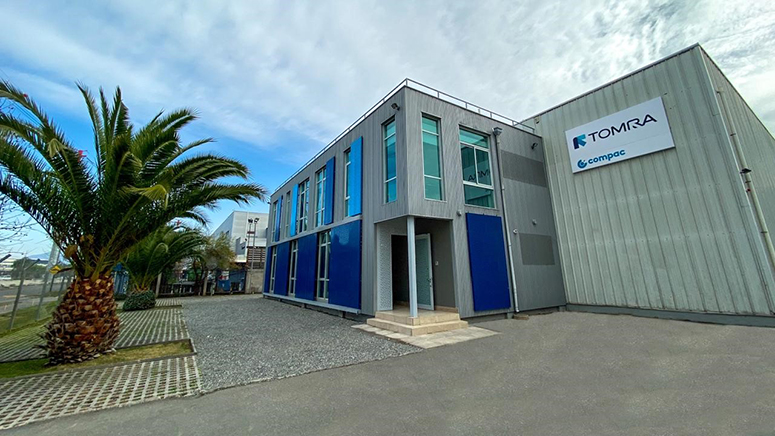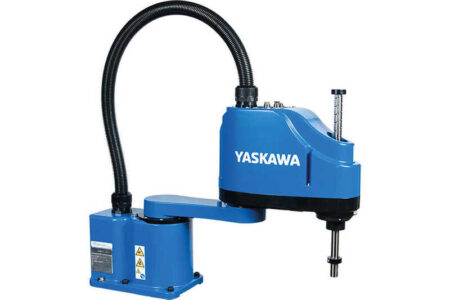Tomra opens new regional headquarters in Latin America

Tomra Food has announced the opening of new regional headquarters to enhance its support of food processors and packers across Latin America. The new purpose-built base, in Santiago, Chile, means that Tomra Food and its two sister companies, Compac and BBC Technologies, now all have a strong presence in the region, which contributes significantly to the global supply of fruits, nuts, vegetables, potato products, grains and seeds, dried fruit, meat and seafood.
Located in the ENEA business park in the Pudahuel area of Santiago, Tomra’s new headquarters are close to the city’s international airport for easy access for customers from all over Latin America. The 810 square-meter, two-story building adds to the premises BBC Technologies has been operating in Chillán for 10 years with more than 20 employees. The new building accommodates offices, a meeting room, a spare parts store for greater spare parts stock, and a test and demonstration area that serves as a Customer Experience Center and Regional Training Hub. These facilities and activities are reportedly creating local employment opportunities.
Michel Picandet, head of Tomra Food, commented: “Tomra Food is growing in Latin America, as it is elsewhere in the world, and Chile is the perfect location for expanding our presence here. The new regional headquarters put us closer to all our Latin American customers to ensure they receive the best resources, service and support. This large facility hosts both Service and Sales personnel, affirming our commitment to the future in this region.”
Ken Moynihan, CEO of Compac, said: “Opening our new regional headquarters is another step forward in providing local access to our global network of training, technical expertise and services across the whole Latin American region, which exports a significant portion of the global trade in fresh produce. Fresh produce companies are looking to supply their customers 365 days per year, so they need to secure high-quality supply from the southern hemisphere. And to succeed in this high value market, exporters need the best packing lines, which is where we add value to their business.”
Tomra reports that the headquarters’ spacious demonstration area makes it possible for potential customers to test machines with their own samples of produce. Latin American customers who previously wanted to do this typically had to make the longer trip to Tomra’s premises in California. Jacinto Trigo, Compac’s Latin America regional director, said: “Our sorting and grading technologies are so powerful, because they can inspect the product externally and internally, that sometimes people have to see the results for themselves to believe them!”
The demonstration room in Santiago currently hosts five optical sorting machines: Tomra 5A, Tomra 5B, Tomra 3C, Tomra Nimbus BSI+, and Blizzard. In the upcoming months, customers will also be able to test here a Compac Single Lane Sorter with Spectrim, UltraView, and Inspectra inspection systems.
Compac customers from Argentina, Brazil, Chile and Peru are reportedly already expressing interest in testing these machines, with fresh produce as varied as apples, avocados, citrus fruits, kiwis, mangoes, round fruits and stone fruits.
Johan Germeys, regional sales manager LATAM, Tomra Food, said: “We have already delivered many tests for customers on a wide variety of produce – fresh and IQF berries such as strawberries, raspberries, blueberries and blackberries, IQF grapes, green beans, nuts, almonds and seaweed – and on every occasion, customers have been impressed by the results.”
If customers are unable to visit Santiago due to Covid-19-related travel restrictions or safety concerns, Tomra is offering arrangements to hold tests with online demonstrations, in addition to holding remote meetings and making training tools available online.
Thomas Molnar, head of Global Sales at Tomra Food, said: “A further benefit of the new headquarters is that people from all three of Tomra’s food-related brands are now located in the same country, working more closely together and exchanging information and ideas. This is going to benefit customers by giving us an even better understanding of their operational challenges, ambitions, and agricultural trends in the region. This is important because Latin America is such a big source in the global supply chain, and still developing.”

